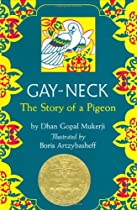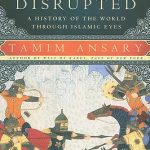The Story of Mankind by Hendrik Van Loon (published 1921) was awarded the first Newbery Medal in 1922, an award intended to celebrate the “the most distinguished contributions to American literature for children” that had been published in the previous year. As a volume that hoped to portray history with a conversational style, Van Loon mentions “You will learn many facts, but it is more important to ‘feel history’ than to know it (page 212).” This is a fantastic premise and my own personal opinion of what history for children should be.
Unfortunately, Van Loon falls quite short of that goal. Van Loon writes with little consistency of tone, and only occasionally does his text read with this interesting story-telling perspective. Many times it feels disjointed as he jumps from one place to another. He sometimes writes an overview, with a general storytelling goal as he hoped to do. Other times, he focuses on one nation extensively, using too many facts, names, and even dates. These chapters had a wonderful soporific effect.
Further, his opinions and personal perspectives are sporadically sprinkled throughout, with first person opinions about the horrible but fascinating Napoleon. (These are not his words, but he essentially discusses the horrible effects of Napoleon’s influence, all while declaring that his grandfather had fought with Napoleon and if he had been alive he would most likely have been drawn under his influence and joined in as well.) He frequently expresses skepticism towards all religions, declaring early Christians intolerant in the early days from 45-150 A.D. I agree that it may have been true at points, but his tone declares his opinion as true. I’m not a world historian, but there are enough questionable perspectives to make me question his accuracy overall. He also inserts single words into sentences that portray his racism and supremacist opinions: he discusses “primitive” people from some cultures and the “heathens” in Africa. It is a product of his era but that does not make it necessary reading for today.
At one point he writes, “as this is a story of mankind and not an exclusive history of the people of Europe and our western hemisphere, you ought to know something something of [Mohammed and Buddha]….” (page 140). These few pages are nearly the extent to which Van Loon mentions societies outside of Europe, and it is particularly disappointing considering his declaration of his book as a world history.
Van Loon declares “Why should we ever read fairy stories, when the truth of history is so much more interesting and entertaining?” I only wish his volume could convince children of this truth. Unfortunately, it leaves much to be desired.
I rate The Story of Mankind Newbery Medal winner as “okay” and say “don’t bother.”
Newbery rating scale: FANTASTIC | REALLY GOOD | PRETTY GOOD | OKAY | BLAH
What to do with this Newbery: KEEP IT AND READ IT | MAYBE IF YOU HAVE TIME | DON’T BOTHER





